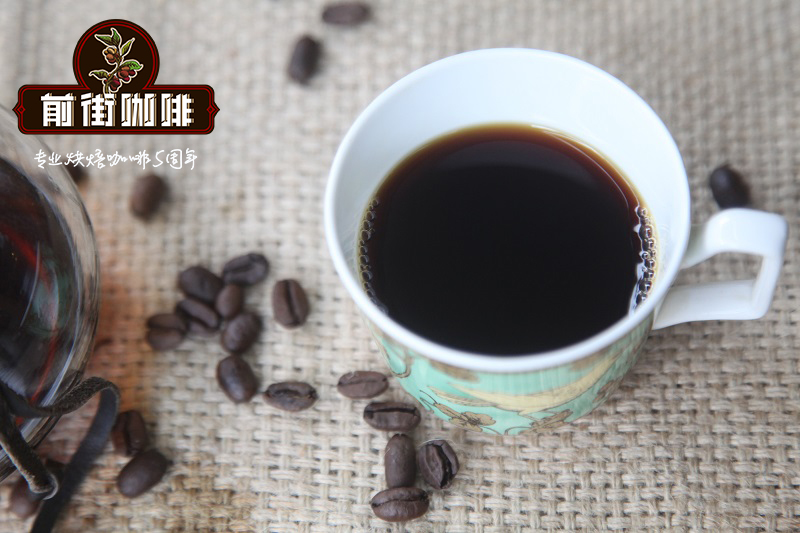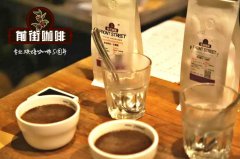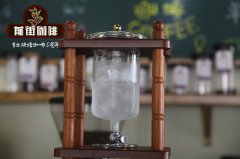Minas Pananova Cooperative Fair Trade Association, Brazil, what are coffee beans? are beans good?

Professional coffee knowledge exchange More coffee bean information Please pay attention to coffee workshop (Weixin Official Accounts cafe_style)
Brazil is the world's largest coffee producer, accounting for about 33% of coffee production. However, due to Brazil's location in tropical rain forest areas, relatively flat terrain and few high-altitude forests, most coffee is planted in low-altitude non-volcanic soil areas, and there is not much shade as shade, resulting in the rapid growth of Brazilian beans and large bean shapes, but the soft coffee density and flavor do not change much. This, coupled with the large-scale harvesting of coffee beans by machine, results in the simultaneous harvesting of coffee of widely varying maturity levels, making the quality of Brazilian beans not particularly used in commercial or bulk bean categories.
After 2000, coffee farmers had the incentive to strive to produce high-quality coffee because of the international auction held by the COE International Coffee Cup. The quality of coffee beans produced in the southern high-altitude areas was well appreciated, mainly in the farms around the Minas plateau. The coffee quality was the leading among Brazilian beans and the highest yield was also achieved. For example, Xirado in the west of Minas and Matas Bahia in the east or small farms in the south. Minas has almost become synonymous with Brazilian fine coffee. In recent years, coffee has been precisely differentiated by treatment (water treatment, semi-washing, semi-solarization, solarization), which has developed a variety of flavors, tastes, and aftertastes that are different from traditional Brazilian coffee. In particular, the semi-sun and sun method performed best, which will make the coffee appear cleaner and less acidic fruit aroma, so that the rich chocolate flavor is reduced.
Located in Minas Guias (Minas Gerais) Espiritu Santo region in the southeast Pananova at an altitude of 900 - 1100 m Pronova Coop was founded in 1988 and joined the Fair Trade Association in 2005. Through cooperation with the Association, the quality of coffee has been continuously improved. Coffee trees include traditional bourbon species and emerging Cardoai and Mundo Novo. In the past two years, they participated in the coffee competition held by the Fair Trade Association with semi-washing method and achieved good results.
Light Roast End of Explosion (City): Light Roast: After grinding, it gives off aromas of peanuts and raisins. After brewing, the wet aroma has the aroma of longan flower tea. It is very clean and balanced. The taste is not high. The acidity of red plum seeds is sweet.
Full City: Coffee ground with dark chocolate aromas, brewed with sugar cane brown sugar aromas, moist and creamy, honey caramel sweet, hazelnut sweet finish.
Date of cup test: October 18, 2010
Dry aroma: 8
Wet aroma: 10
Clean: 9
Brightness: 7
Taste: 8
Balance: 10
Complexity: 7
Sweetness: 9
Acid: 9
Aftermath: 9
Overall comments: Pananova Co-op light roast longan flower tea and blueberry sweet, with heavy roast milk chocolate sweet is the most obvious, compared to the sun Brazil beans is very clean excellent balance and rich creamy taste of coffee, has a glorious traditional Brazilian flavor.
Minas has become synonymous with Brazilian fine coffee.
Important Notice :
前街咖啡 FrontStreet Coffee has moved to new addredd:
FrontStreet Coffee Address: 315,Donghua East Road,GuangZhou
Tel:020 38364473
- Prev

What are the coffee beans of Santa Lucia Manor in Minas, Brazil? there are several kinds of coffee in Minas, Brazil.
Professional coffee knowledge exchange more coffee bean information please follow the coffee workshop (Wechat official account cafe_style) Product name: Brazil Santa Lucia Manor Yellow bourbon production area: South Minas varieties: yellow bourbon altitude: 1080-1200 meters treatment: half sun (peel sun) flavor description: nuts. Cream. Caramel Santalu Seya Manor (Fazenda Santa Lucia)
- Next

How to grow small grains of coffee in Baoshan, Yunnan? can we grow good coffee beans in China?
Professional coffee knowledge exchange more coffee bean information please pay attention to the coffee workshop (Wechat official account cafe_style) 1, the environmental conditions required by small Coffee Coffee is native to Ethiopia in north-central Africa, located in 69 N, 3440 E, 13001900m above sea level, precipitation 16001900mm, annual average temperature 20 ℃ lower layer of tropical rain forest. In the long-term process of evolution
Related
- Does Rose Summer choose Blue, Green or Red? Detailed explanation of Rose Summer Coffee plots and Classification in Panamanian Jade Manor
- What is the difference between the origin, producing area, processing plant, cooperative and manor of coffee beans?
- How fine does the espresso powder fit? how to grind the espresso?
- Sca coffee roasting degree color card coffee roasting degree 8 roasting color values what do you mean?
- The practice of lattes: how to make lattes at home
- Introduction to Indonesian Fine Coffee beans-- Java Coffee producing area of Indonesian Arabica Coffee
- How much will the flavor of light and medium roasted rose summer be expressed? What baking level is rose summer suitable for?
- Introduction to the characteristics of washing, sun-drying or wet-planing coffee commonly used in Mantenin, Indonesia
- Price characteristics of Arabica Coffee Bean Starbucks introduction to Manning Coffee Bean Taste producing area Variety Manor
- What is the authentic Yega flavor? What are the flavor characteristics of the really excellent Yejasuffi coffee beans?

